“If Not for This, I’d Be Freezing to Death”
How a pair of Providence city councilors bucked the mayor—and the trend of homelessness criminalization nationwide—to open an emergency shelter.
“If Not for This, I’d Be Freezing to Death”: The Fight in Providence to Open a Temporary Shelter

How a pair of Providence city councilors bucked the mayor—and the trend of homelessness criminalization nationwide—to open an emergency shelter.
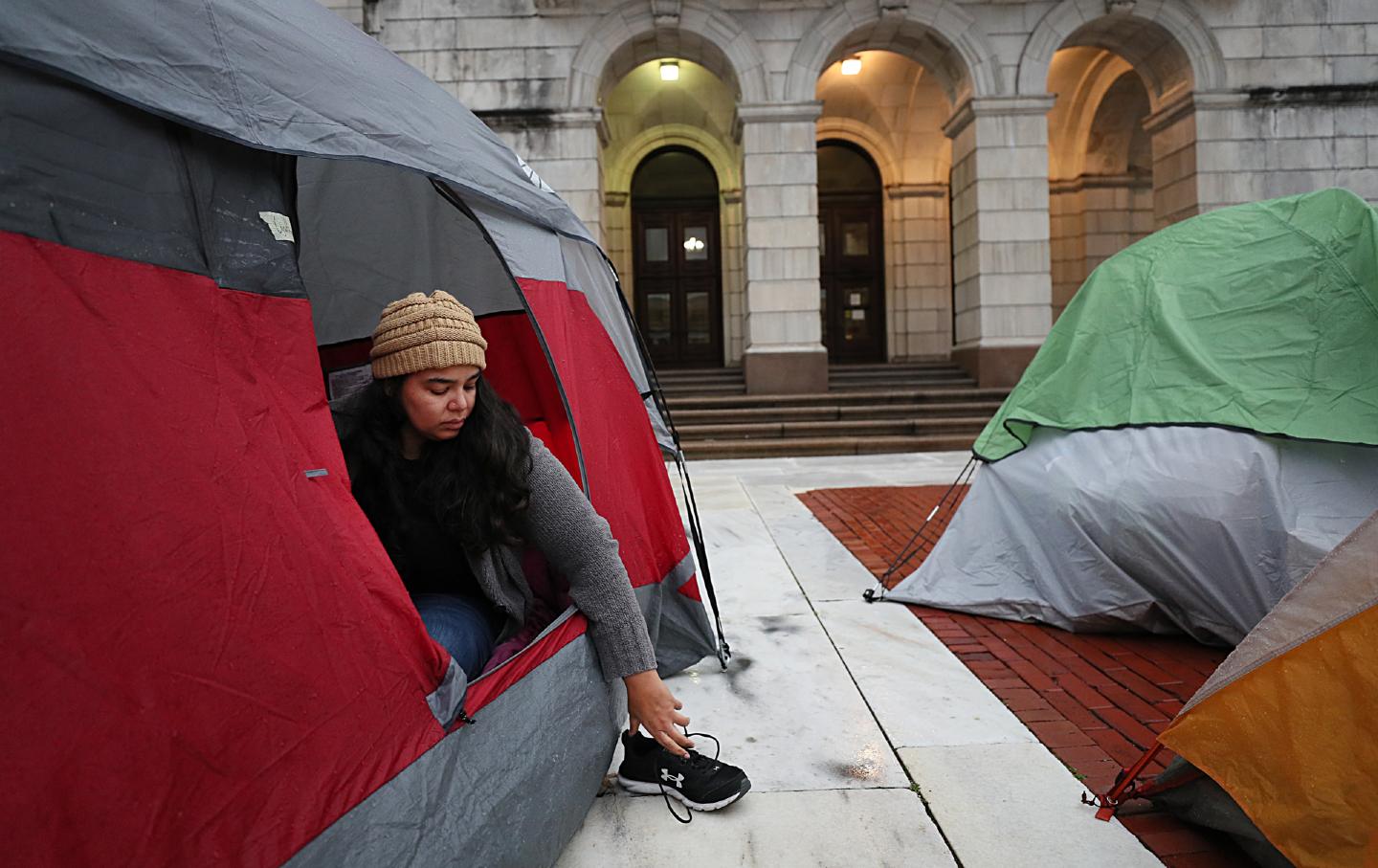
Rhode Island State Senator Cynthia Mendes woke up from her sixth straight night of sleeping in a tent at the Rhode Island Statehouse in Providence, Rhode Island, on December 6, 2021.
(Suzanne Kreiter / The Boston Globe via Getty Images)
At 8:15 pm in a makeshift emergency shelter on January 9, Billy “Blue Eyes” LaPierre unfurled his thick yellow blanket on the hardwood floor. At that moment, Norma Gonzalez, the executive director of what on any other day was the DaVinci Center, was in the kitchen tossing salad in a giant bowl while giving instructions over her shoulder to the volunteers bustling around her. Providence city councilmen Justin Roias and Miguel Sanchez were buzzing throughout the crowd, cracking jokes with other organizers about their lack of sleep. Outside, a polar vortex had descended on Rhode Island, sending temperatures as low as 19 degrees Fahrenheit without windchill.
“If not for this, I’d maybe be freezing to death.” LaPierre, who typically sleeps outside a bank, told me. For the final two days of the polar vortex, January 8 and 9, the city of Providence sanctioned the conversion of the DaVinci Center into the shelter, staffed entirely by volunteers and relying entirely on donations, where LaPierre was now making camp. On both nights, he was joined by dozens of homeless residents in what was likely a life-saving operation—54 people died while experiencing homelessness in Rhode Island last year. LaPierre knows this: “It’s too fucking cold out there, and people are dying.” But during this cold snap, there were no reported deaths.
Yet the plan to protect the city’s unhoused residents only occurred thanks to direct actions spearheaded by councilmen Roias and Sanchez, actions that stand in contrast to the wave of criminalization of homelessness that has increasingly swept urban areas across the country. On Tuesday, January 7, Roias and Sanchez turned Providence city council chambers into an emergency shelter—against the orders of the mayor.
When the polar vortex arrived, it exacerbated the already dire conditions for homeless residents throughout the state. Nearly all the shelter beds across the state were full, and the waitlist for one was over 900 names long, according to the Coalition to End Homelessness. Based on 2024 data from the Department of Housing and Urban Development, Rhode Island has the second-highest rate of chronic homelessness in the country, and outreach groups report unsheltered homelessness increasing by over 300 percent since 2020.
“What is happening now at the state level is just woefully inadequate,” Roias told me. “There are zero emergency shelter beds. Beds are like a ghost story in Rhode Island.”
That Monday, Roias and Sanchez, who also works as a street outreach worker, began searching for options for a new shelter space. Given that the likelihood of gaining approval for new funding on such short notice was low, they crafted a proposal: converting the DaVinci Center in Roias’s ward into an emergency shelter staffed by volunteers through the end of the polar vortex. The DaVinci Center already serves as a community space—offering tutoring, cooking classes, and other events for the surrounding neighborhood.
They’d already gotten executive director Gonzalez’s approval. Providence City Council president Rachel Miller even e-mailed the mayor’s office saying she would volunteer a few hours herself. Since the DaVinci Center is city-owned, all that was left was a yes from the mayor.
But the mayor’s office said no, citing the city’s potential liability if something were to go wrong.
In a statement from city spokesperson Josh Estrella, he wrote that while the mayor “appreciates the intentions behind the actions to turn Council Chambers and the DaVinci Center into warming centers, the most effective and sustainable solutions come from working within professionalized systems and partnerships the City has built,” emphasizing both that the city already has warming centers and shelters (while not commenting on their capacity), and that City Hall lacked “the resources, expertise and proper facilities required to safely operate as a warming center sustainably.”
This denial of resources tracks with a mentality that has taken hold across the country as the homelessness crisis worsens, particularly in the months since the Grants Pass v. Johnson Supreme Court decision allowed cities to criminalize their homeless populations even if no shelters were available. As I reported for The Appeal last August, within just two months of the decision, dozens of cities had passed new bans on homeless encampments, with liberal mayors and far-right zealots alike finding common ground on making homeless people, not the homelessness problem, go away. And while Providence doesn’t ban encampments, last May, the mayor, Brett Smiley, ordered two encampments housing 70 residents to be raided and swept by police on the grounds they were “unsafe.”
In many other cities, such a directive from city leadership would be, and often has been, the last word. But Roias and Sanchez refused to give up. Instead, they went with what Roias called the “nuclear option”: city council chambers.
“At that point, we were extremely desperate,” Sanchez said. “We were being told no at all these places. But there’s nothing stopping us from connecting with our neighbors at any time, since the council chambers belong to the city council. And it is my strong opinion that any public space ultimately belongs to the people of Providence.”
Roughly 24 hours of intense, nonstop organizing later, including getting enthusiastic approval from council president Miller, around 30 people, many of whom had never previously set foot in City Hall, were setting up sleeping bags in the nearly 150-year-old council chambers. According to Sanchez, dozens of volunteers assisted throughout the night. Around dinner time, Sanchez put out a request for food donations on Instagram. Within an hour, 50 pizzas had been delivered. Roias emphasized that many of the volunteers had day jobs at shelters or other homelessness outreach organizations.
Also in attendance were pro bono lawyers from the National Lawyers Guild, and volunteers had been instructed to be prepared to form a chain around those taking shelter should police arrive to sweep the chambers and make arrests. It wasn’t a far-fetched possibility; Sanchez said when Smiley discovered the city council’s plans, he threatened to send police to barricade the entrance. Sure enough, the next day, Smiley told ABC6, “Ultimately, it’s my building, and I could have padlocked the doors. I didn’t want to do that.”
Sanchez said he was prepared to be arrested if it came to it. Thankfully, it didn’t, and those in attendance stayed warm throughout the night.
“I will walk the line and follow institutional norms as much as I can,” Roias said. “But these folks are risking their lives, and some of them will freeze to death. So if there’s life on the line and me asking politely doesn’t get what we need, then I will be creative.”
Such creativity quickly paid dividends. The following day, the mayor’s office, facing mounting negative press, agreed to open the DaVinci Center as an emergency shelter through the end of the polar vortex. That establishing something as basic as a shelter in a city-owned building feels like such a victory only demonstrates the local and federal leaders’ countrywide abdication of responsibility to their most vulnerable constituents.
When I arrived at the DaVinci Center on the final night of the polar vortex, I caught up with councilman Sanchez while he leaned against a donation table covered in oranges, bananas, and ramen packets.
“There’s really a disconnect somewhere between the people and the government,” he said. He gestured to the crowded room. “All this is really a testament to the will of the people. Because the people are willing to help.”
The food donations tables stretched wall to wall behind Sanchez, with hundreds of water bottles packed underneath. In front of us was a row of cardboard boxes stuffed with winter clothes sorted by size. Dinner had just been called, and volunteers ready to apportion carnitas, rice and beans, and supplies from Dunkin’ Donuts were crowding around a buffet table in the opposite corner of the room. Many of the guests were sprawling their supplies out in front of the mounted TV. One person had already fallen asleep.
LaPierre, who had slept there the previous night, was impressed. “It’s been unbelievable,” he said. He nodded to his blanket. “This is my spot here, right by the TV. Went to bed at 12, woke up at six. It was a great, great day. I had breakfast, eggs, sausage, muffins, almonds, juice. The community is coming together.”
Throughout the evening, as many longtime residents of Providence coalesced to help each other out, there was one near universal refrain: The state government is letting us down.
“[The state] sees homelessness, but they don’t see the root cause. They don’t want to deal with that,” Gonzalez said, while chopping vegetables. On the other side of the kitchen, Roias could be overheard saying, “We’re supposed to be liberating people from our suffering, but our government has not done that. I need the state, this country to know the stress they’re putting on us. It’s sociopathic stuff.”
Pat Ford, founder of Libertarian Mutual Aid, was incensed by the state’s hiding behind process: “There’s a crisis of people obsessed with asking how many homeless can you fit on the needle of a pin as opposed to simply saying we have a problem and need to fix it.”
Their ire was directed mostly at Rhode Island Governor Dan McKee for his refusal to declare homelessness a public health emergency. Advocates say the move would make it easier to create more shelter space, most immediately by exempting churches willing and able to take people in but prevented from doing so by fire safety regulations.
Popular
“swipe left below to view more authors”Swipe →Declaring a public health emergency was a central demand from the one-night encampment in city council chambers, and thanks to that initial push, the call is gaining momentum. Just two days later, those same chambers were packed with people watching the city council pass a resolution demanding that McKee declare a public health emergency.
“I rise tonight in outrage at the staggering failure of leadership that has brought us to this point,” Roias said in his comments on the resolution. “If the governor will not act, then we will force his hand.” At this, the audience interrupted in applause.
The following week, 46 state lawmakers, including Senate President Dominick Ruggerio, signed a petition again calling on McKee to declare an emergency. This week, as temperatures fell into the single digits, he had still refused.
Governor McKee’s office did not respond to a request for comment. In a statement released after the action in city council chambers, McKee said safety concerns were behind his lack of action, saying, “If I were to use that emergency power to waive capacity limits in shelters or ignore other safety concerns such as sprinkler systems and adequate egress, I would be solving one problem by creating a new one.”
Back at the DaVinci Center, Sanchez stressed that while he has been moved by the success of their efforts, providing life-saving services with a skeleton crew of temporary, rotating volunteers is not a sustainable path forward.
“So many of us are so tired,” Sanchez said. “I slept six hours the past two nights combined. At the end of the day, we need funding, either from the state or the city to keep something like this successful. We can’t keep relying on volunteers.”
Nearby, LaPierre was settling in on his blanket for the night. But without meaningful policy change from the city or state, he and the dozens who found refuge at the DaVinci Center will spend the next freezing weeks sleeping on the street once again, leaving each of them at risk of becoming one of the dozens of unhoused Rhode Islanders who die in the state every year.
“It’s both beautiful and deeply upsetting,” Roias said of their efforts. “Beautiful because people are coming together to fill the gaps. But terrifying, because these gaps exist due to the failures of our city and state to meet this moment.”
In a sign of the movement’s staying power, when freezing temperatures rolled around once again this week, city leaders announced that once again the DaVinci Center would open as a temporary emergency shelter. This time, the mayor’s office approved not just the space but also resources in the form of staff from BetterLives RI, a local nonprofit.
Piece by piece, win by win, Roias said he hopes Providence can become a beacon to advocates across the country. “The political establishment might wag their finger. They might clutch their pearls,” Roias said. “But if your government says no, you are tasked with the very real responsibility of keeping people alive. So you have to think, what do you have at your disposal to protect people?
Disobey authoritarians, support The Nation
Over the past year you’ve read Nation writers like Elie Mystal, Kaveh Akbar, John Nichols, Joan Walsh, Bryce Covert, Dave Zirin, Jeet Heer, Michael T. Klare, Katha Pollitt, Amy Littlefield, Gregg Gonsalves, and Sasha Abramsky take on the Trump family’s corruption, set the record straight about Robert F. Kennedy Jr.’s catastrophic Make America Healthy Again movement, survey the fallout and human cost of the DOGE wrecking ball, anticipate the Supreme Court’s dangerous antidemocratic rulings, and amplify successful tactics of resistance on the streets and in Congress.
We publish these stories because when members of our communities are being abducted, household debt is climbing, and AI data centers are causing water and electricity shortages, we have a duty as journalists to do all we can to inform the public.
In 2026, our aim is to do more than ever before—but we need your support to make that happen.
Through December 31, a generous donor will match all donations up to $75,000. That means that your contribution will be doubled, dollar for dollar. If we hit the full match, we’ll be starting 2026 with $150,000 to invest in the stories that impact real people’s lives—the kinds of stories that billionaire-owned, corporate-backed outlets aren’t covering.
With your support, our team will publish major stories that the president and his allies won’t want you to read. We’ll cover the emerging military-tech industrial complex and matters of war, peace, and surveillance, as well as the affordability crisis, hunger, housing, healthcare, the environment, attacks on reproductive rights, and much more. At the same time, we’ll imagine alternatives to Trumpian rule and uplift efforts to create a better world, here and now.
While your gift has twice the impact, I’m asking you to support The Nation with a donation today. You’ll empower the journalists, editors, and fact-checkers best equipped to hold this authoritarian administration to account.
I hope you won’t miss this moment—donate to The Nation today.
Onward,
Katrina vanden Heuvel
Editor and publisher, The Nation
More from The Nation
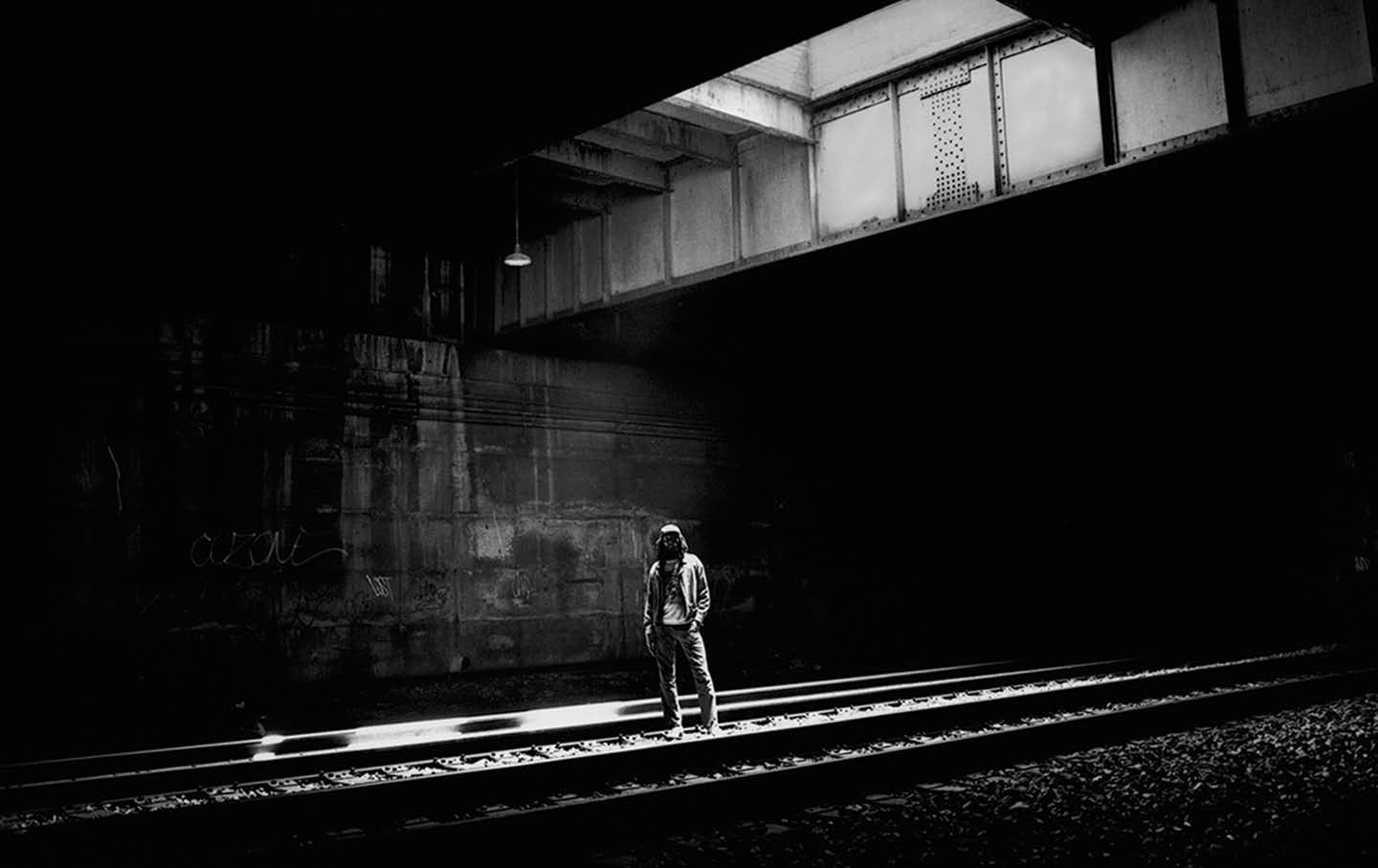
The Tunnel Home: A Story of Housing First The Tunnel Home: A Story of Housing First
In the 1990s, a group of New Yorkers helped prove the effectiveness of a bold but simple approach to homelessness. Now Trump wants to end it.
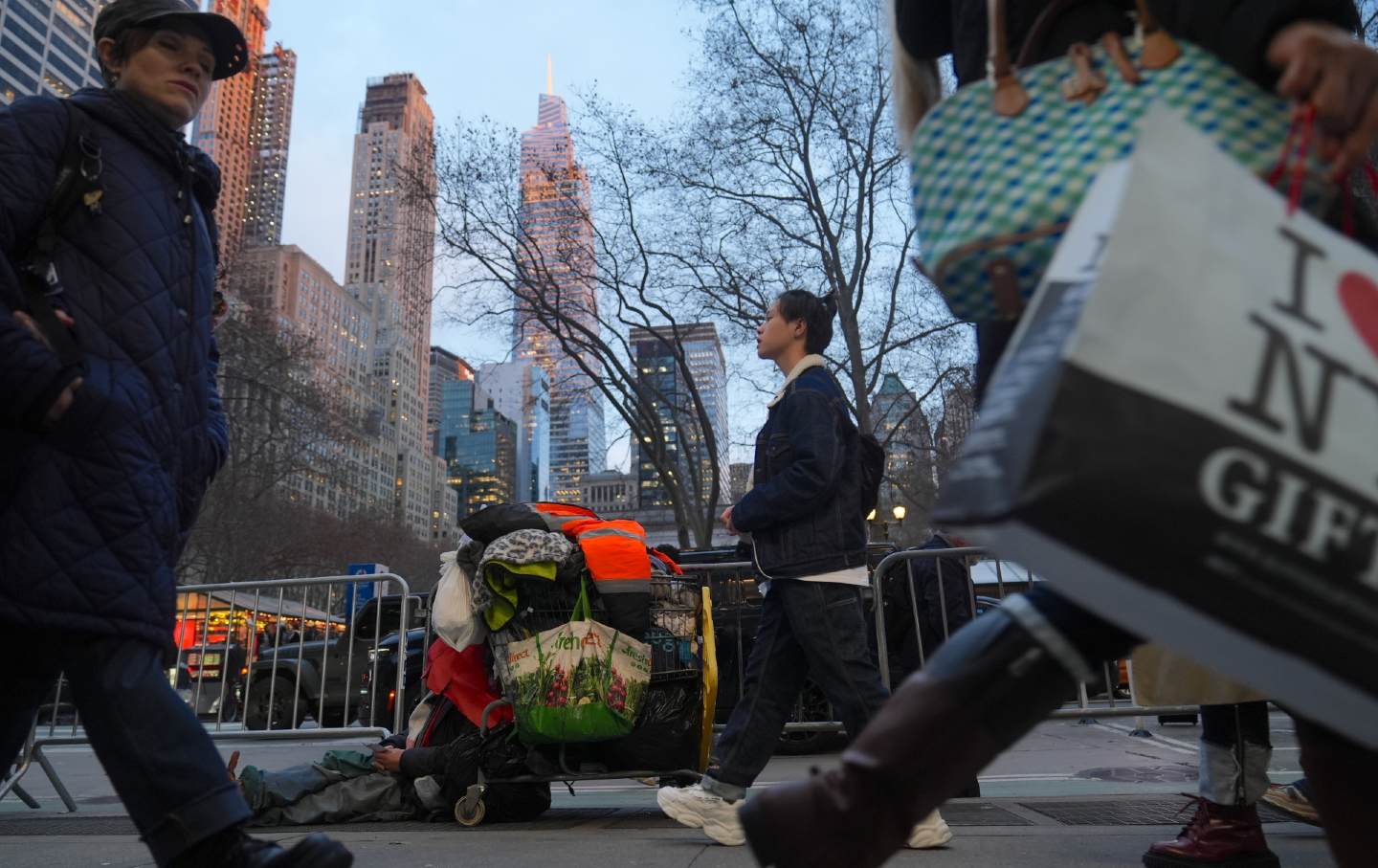
Memo to the Mayor: How You Can Accelerate the Development of Affordable Housing Memo to the Mayor: How You Can Accelerate the Development of Affordable Housing
Don’t just freeze the rent of rent-stabilized units. Don’t allow their demolition at all.
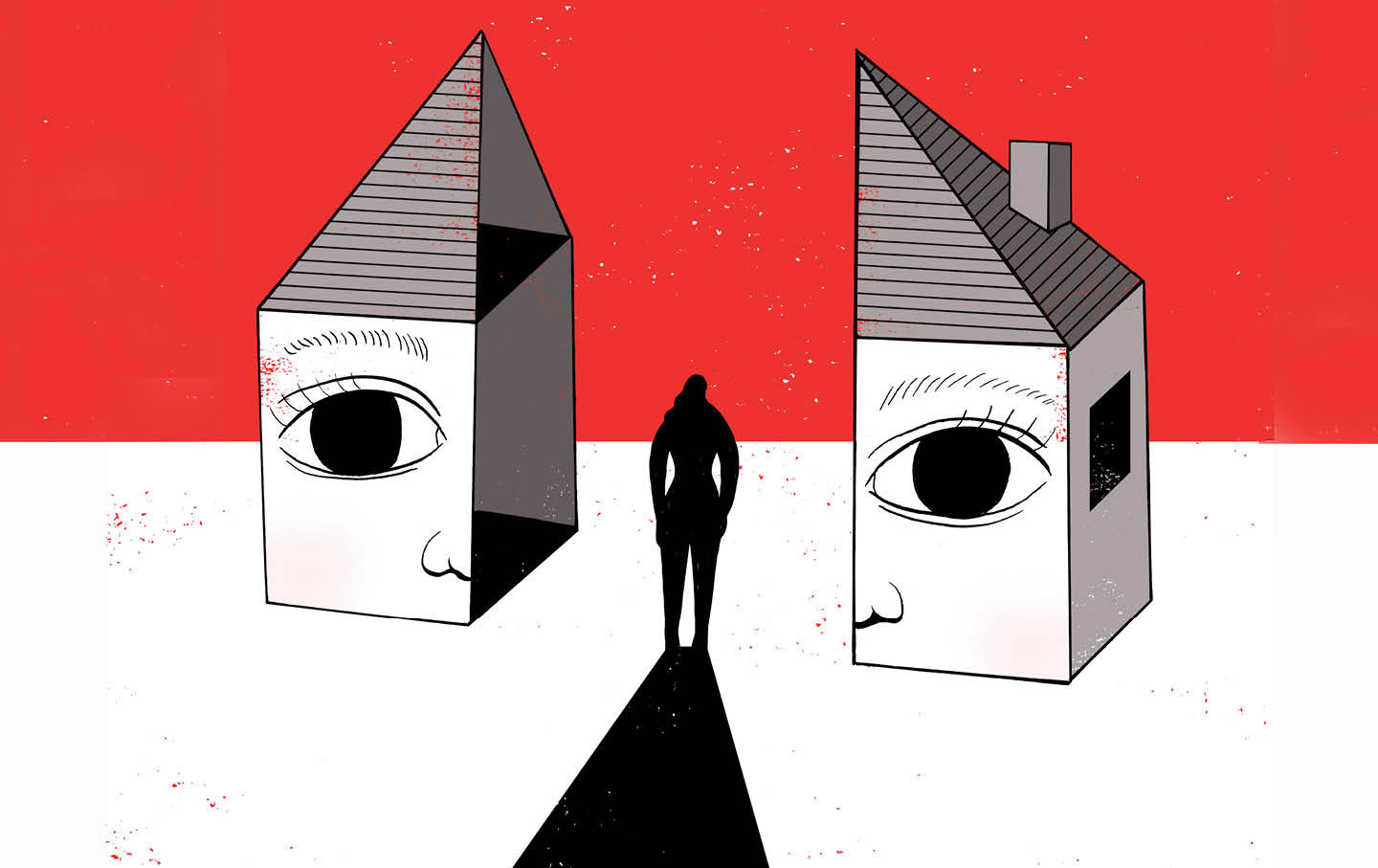
“Nobody Blames the Landlord. They Just Take Away the Kids.” “Nobody Blames the Landlord. They Just Take Away the Kids.”
All too often, when parents can’t afford safe housing, the solution child welfare services offer is putting their children in foster care.
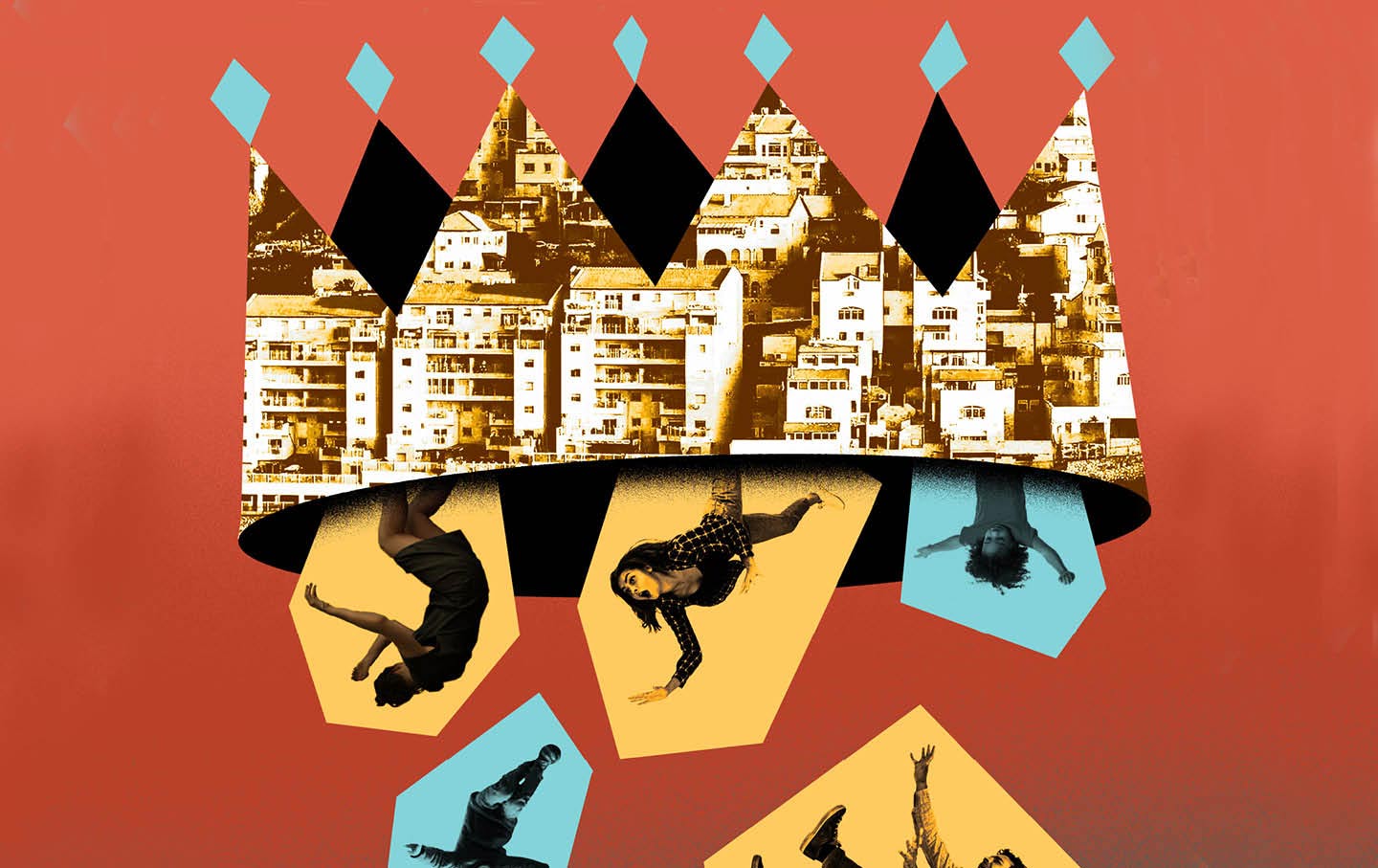
The Eviction Kings The Eviction Kings
One of Israel’s biggest companies is taking over huge swaths of US real estate—and tenants are paying the price.
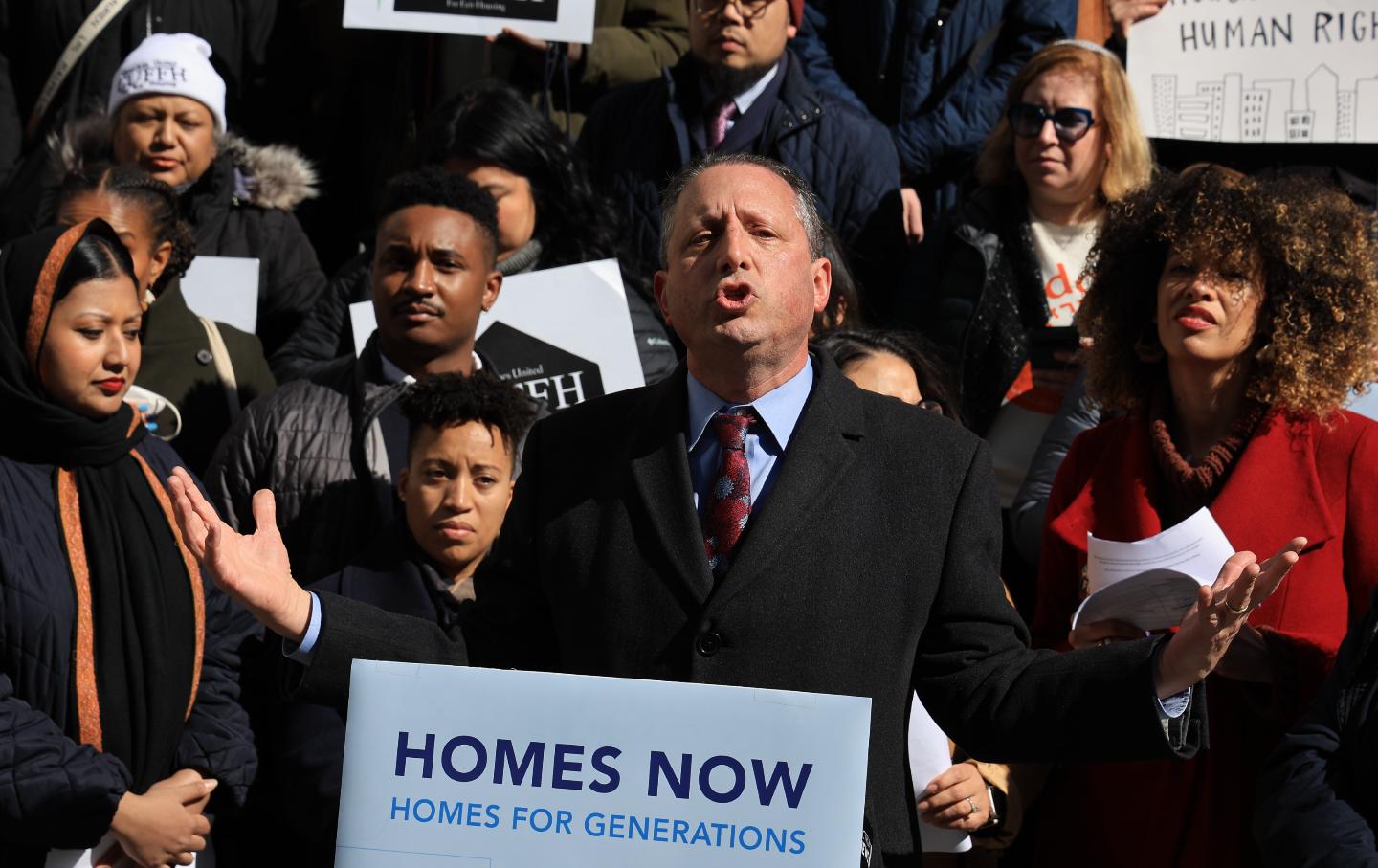
Affordable Housing Is at Stake in the NYC Election, but Advocates Can’t Agree on How Affordable Housing Is at Stake in the NYC Election, but Advocates Can’t Agree on How
While half of the proposals on this year’s ballot deal with housing, elected officials and organizers in New York City are divided on their effectiveness.
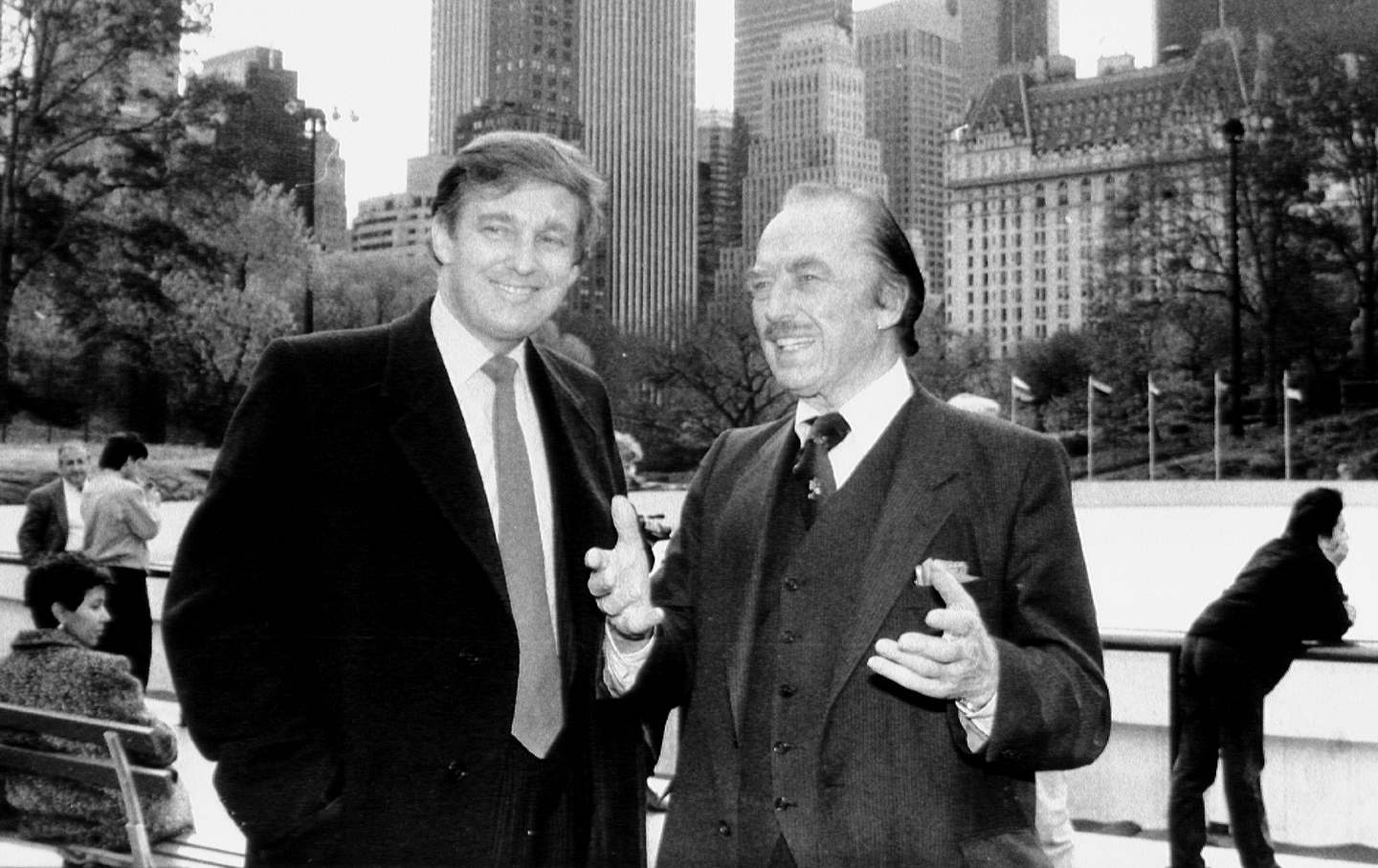
Trump’s Slumlord Administration Is Gutting the Fair Housing Act Trump’s Slumlord Administration Is Gutting the Fair Housing Act
There can’t be true desegregation without ending discrimination in housing—which is precisely why the administration is rolling back enforcement of the FHA.


